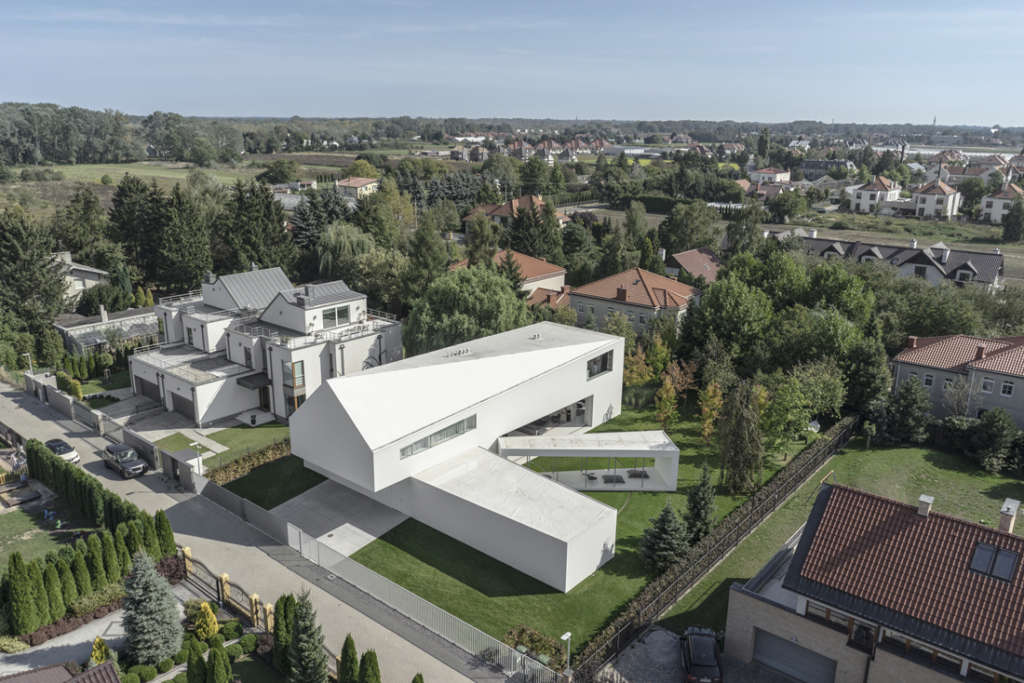
The following description is courtesy of ROBERT KONIECZNY KWK PROMES.
Idea
Investors wanted a simple, sunny and relaxing home, somehow reacting to the movement of the sun. They also valued our moving buildings and their changeability.
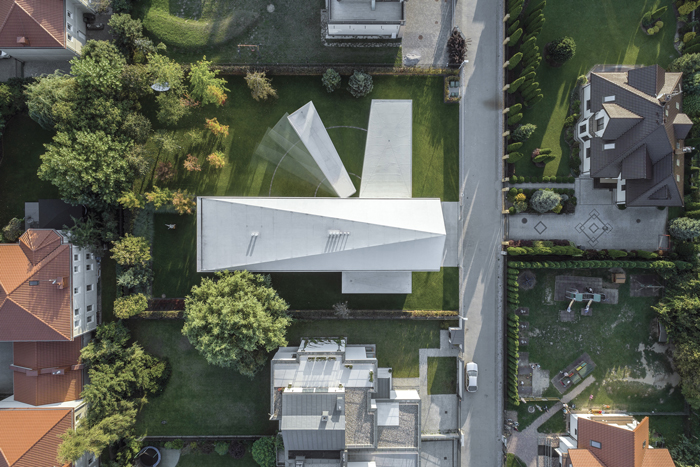
The starting point was a regular shape unbuilt site, located in the suburbs among the average single-family housing.
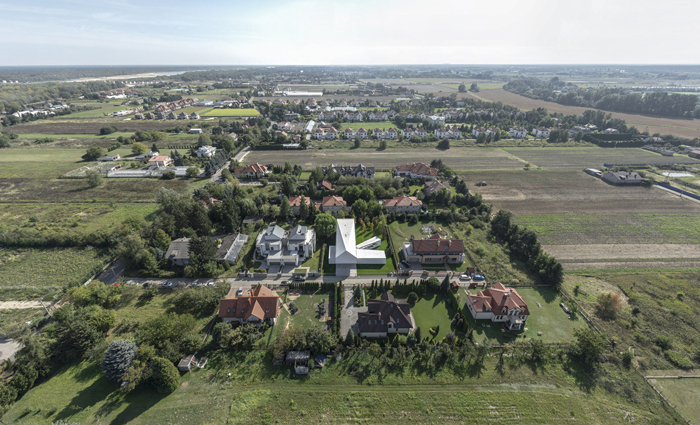
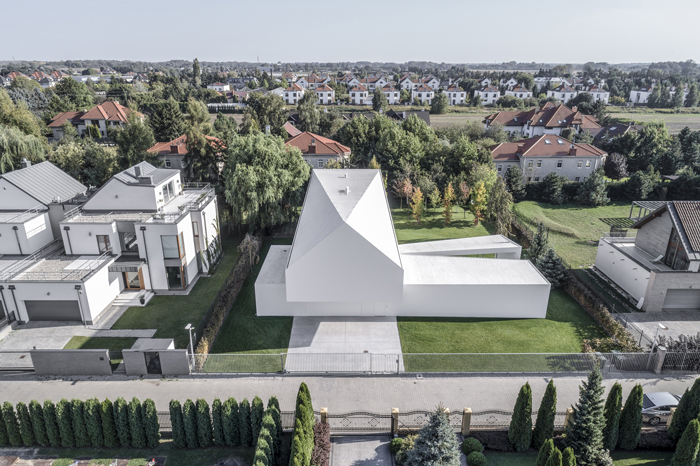
We placed a rectangular solid on it and then turned the part belonging to the ground floor to get as much privacy as possible from the side of the road. In the ‘cut’ space was located a living room, roofed floor and in the perpendicular shape, we located the SPA zone. Both spaces close to the private part of the garden. The investors’ wish was a simple house with a flat roof, but the local plan imposed sloping roofs. Therefore, from the street side, the house has a gable roof, and from the garden side a flat roof, which ultimately created a non-standard, characteristic house shape.
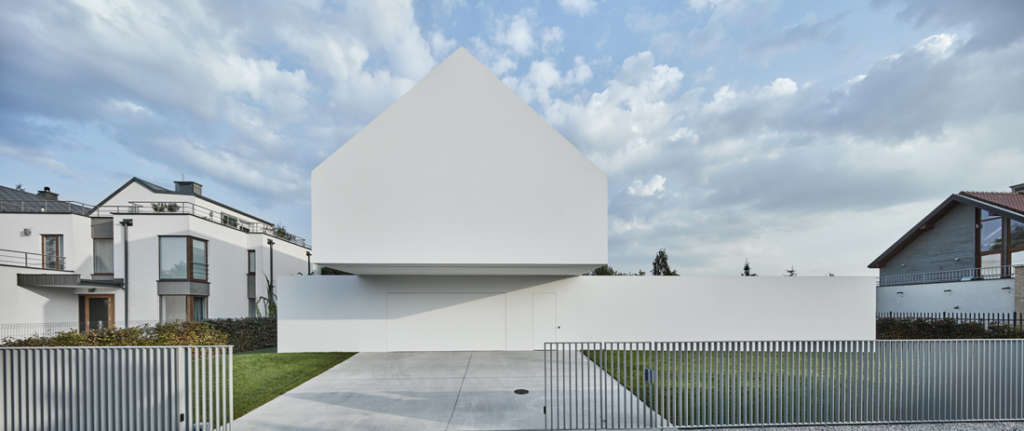
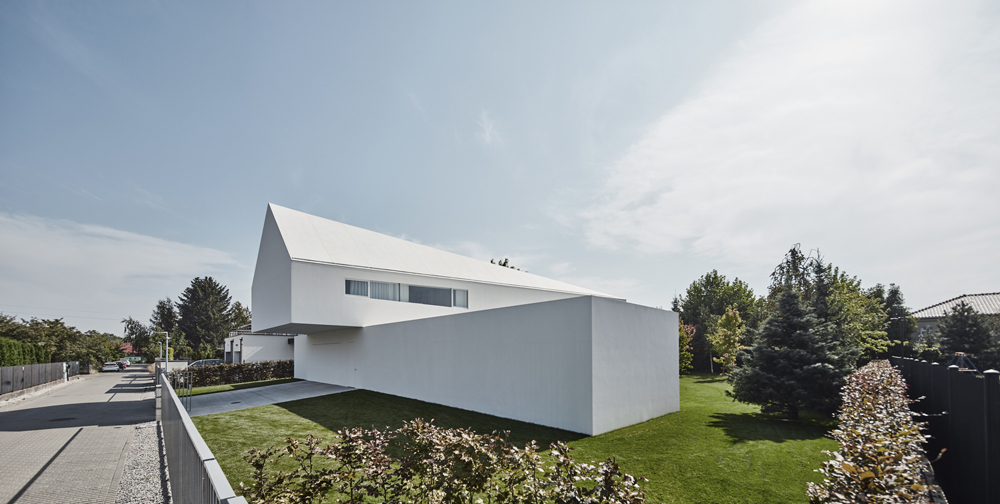
Investors wanted a house reacting to the sun, which is why we used the motif of the quadrant – an old device used to determine the position of the stars. We have designed a terrace that reacts to the sun and follows it, thus residents sit in its shade and pleasant airing and – depending on the season – it regulates the amount of sunlight in the spaces it adjoins – gives the desired shadow in the summer and in winter allows for more sunlight inside. Furthermore, in good weather and also in the evening, when the house is open, it can be an extension of the daytime area or SPA.


The drive system is fully automated, but manual control is also possible, depending on the needs. Movement of the terrace has been programmed to be in constant motion during the day so that natural grass grows underneath.
Technical solutions and materials

The construction of the walls and ceilings was made in monolithic technology, additionally, the roof truss was built in wooden construction. As a wall finish, Sto plaster was used – the Milano acrylic filler in white and the roof cover is a white TPO Firestone membrane. The white color also dominates in the interior – white epoxy resin was used on the floors.

Windows in the living room area




While working on the detailed design, we have established cooperation with Skyframe, specializing in frameless sliding window systems. At that time, Skyframe did not have such a wide glazing set – the living room had two sets consisting of six sliding windows that parked in the wall niches and allow the living room to be opened completely from two sides. However, they liked our project very much and treated it as a design challenge. After six months, they created a completely new prototype motorized sliding system, which they personally commissioned and programmed on site.
Moving terrace
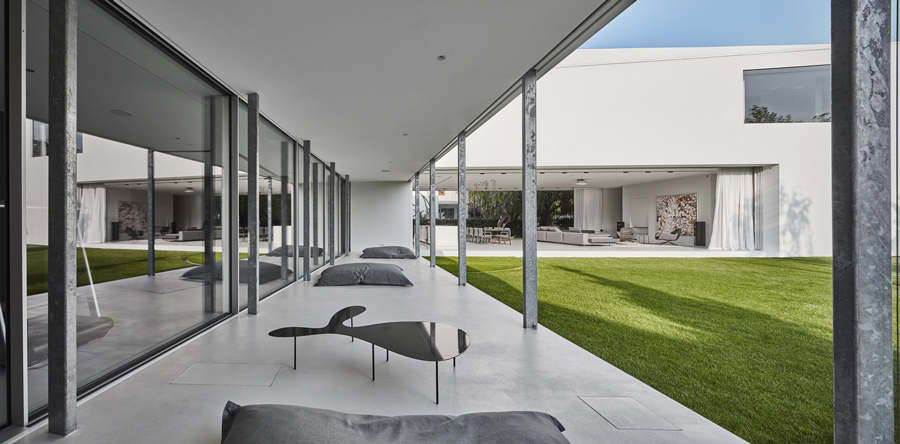
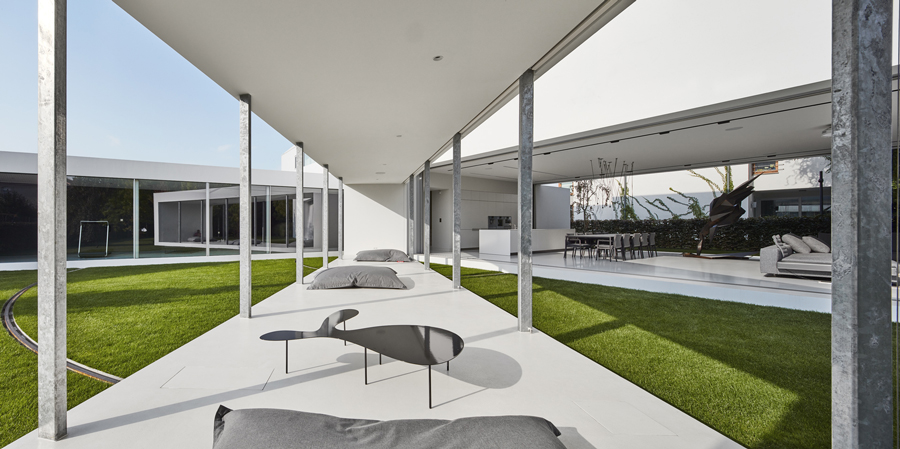
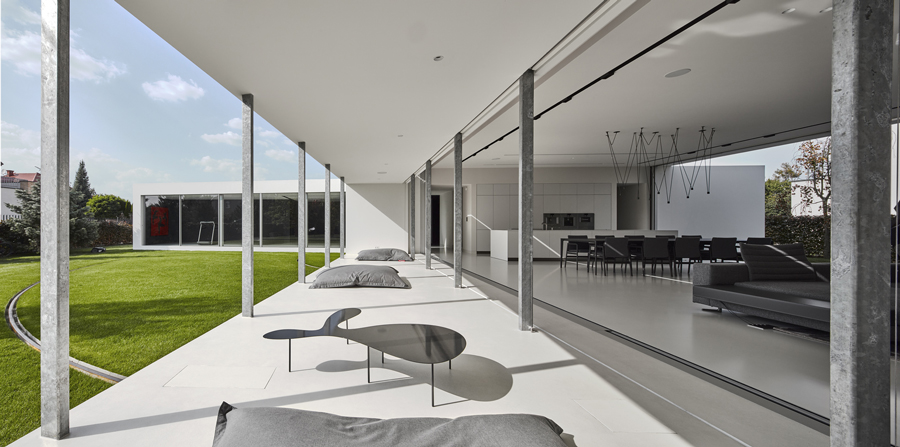

Mechanisms by which the terrace of the building moves are designed and made by Comstal. This company collaborated us in the construction of Safe House, Konieczny’s Ark and National Museum in Szczecin Dialogue Centre „Przelomy”, which are also equipped with a various kind of a large – scale, moving elements. The movement of the terrace and its speed is adapted to the sun’s wandering. The drive system is fully automated and has advanced safety sensors – if it encounters an obstacle, the terrace stops, making it completely safe to use. However, for functional reasons, manual control is also possible. The terrace has been programmed to be in constant motion during the day, thanks to which natural grass grows underneath.


Video
Project Credits
Name: Quadrant House
Author: Robert Konieczny
Collaboration: Marcin Harnasz, Mariusz Pawlus, Marcin Króliczek, Grzegorz Ostrowski, Justyna Górnica
Interior design: Pulva Adam Pulwicki
Construction: Proeco Kornel Szyndler
Investor: private
Site area: 1,679 m2
Useable floor area: 558 m2
Volume: 2,802 m3
Design: 2013-2015
Realization: 2015-2018




